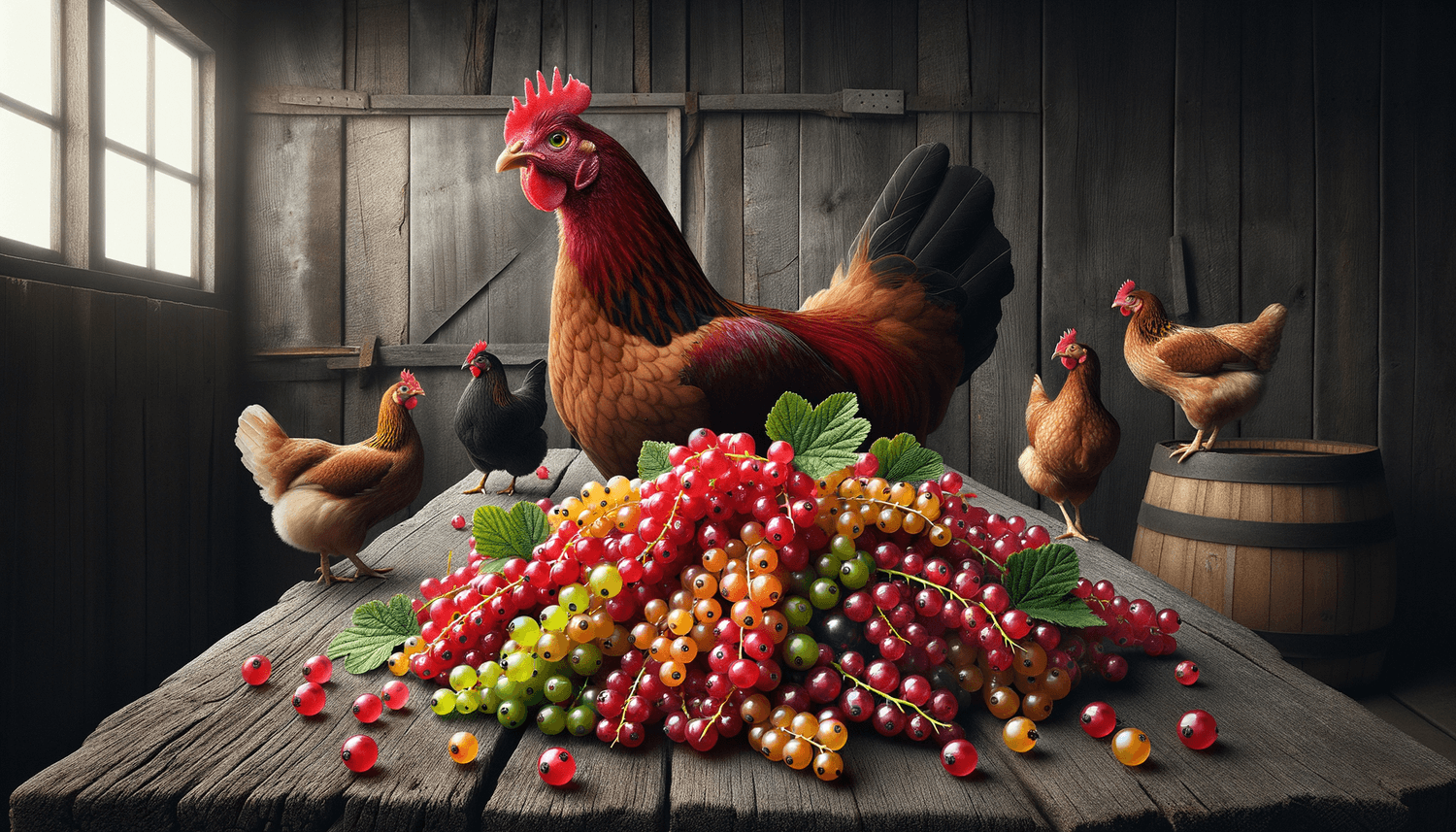Welcome, fellow chicken enthusiasts! Today, we’ll be delving into the scrumptious world of fruits and discussing the big question: can chickens eat currants? Oh, the sweet excitement of discovering new treats for our feathery friends! In this blog post, we’ll uncover whether currants are safe for chickens or not, explore the importance of a balanced diet, reveal the nutritional benefits (or risks) of currants, and guide you through the proper way to prepare these tiny, tasty treasures for your cluck-worthy companions. Get your aprons on, everybody – we’re cooking up some knowledge for our backyard broods!
Can chickens eat currants?
Yes, chickens can safely eat currants! These small fruits are not harmful to your feathered friends and can actually serve as a tasty, nutritious snack in moderation. However, it’s vital to ensure that currants are only served as a treat and not a substitute for a well-balanced diet to maintain optimal health among your backyard flock.
The importance of a balanced diet for chickens
Just like us humans, chickens thrive when they receive a balanced diet, ensuring they get all the essential nutrients required for their health and well-being. A chicken’s diet should primarily consist of a high-quality chicken feed, which provides the perfect balance of proteins, vitamins, and minerals needed to keep them in tip-top shape. In fact, chicken feed should make up around 80-90% of their diet to guarantee they get the required nutrients for optimum growth, egg production, and overall health.
The remaining 10-20% of a chicken’s diet can be made up of tasty treats such as fruits, vegetables, and other healthy extras. This extra portion not only adds fun and flavor to their daily meals but encourages the chickens to explore and engage with their environment while ensuring variety and balance in their overall diet. Just make sure to prioritize chicken feed over tasty treats, as it’s crucial for maintaining a harmonious and healthy backyard flock.
Nutritional value of currants for chickens.
Feeding currants to chickens not only provides them with a delicious treat but also offers a range of nutritional benefits. Currants are packed with essential vitamins and minerals that can positively impact the health of your feathered friends. One of the most prominent vitamins in currants is vitamin C, which helps support the immune system, keeping your chickens healthy and able to ward off potential diseases and infections.
Furthermore, currants contain significant amounts of antioxidants, which are highly beneficial for your backyard birds. Antioxidants help neutralize harmful free radicals in the body, supporting overall health and well-being. In addition to these health-promoting properties, currants are rich in dietary fiber. Although chickens don’t require as much fiber as humans, it can still aid in their digestion, ensuring optimal gut health.
The natural sugars present in currants provide chickens with a quick source of energy, which is essential for active and productive birds. Moreover, the high water content in currants aids in keeping your chickens hydrated, especially during warmer months, promoting their overall well-being. So, while currants shouldn’t replace a chicken’s primary source of nutrition, they certainly serve as a nutritious and delectable treat to supplement a varied and healthy diet for your backyard flock.
Nutrition table of currants for chickens.
| Information | Description |
|---|---|
| Nutritional Value | Currants provide vitamins, minerals, antioxidants, and dietary fiber. |
| Suggested Serving Size | A small handful of currants per chicken, offered as an occasional treat. |
| Safe Feeding Practices | Offer currants as a treat, making sure not to exceed the 10-20% treat allowance in their diet. |
| Preparation | Wash and remove any stems before serving to your chickens. |
| Potential Risks | Overindulgence in currants can lead to an imbalanced diet and potential nutrient deficiencies. |
| Hydration | Currants have a high water content which can help keep your chickens hydrated. |
| Digestion | Dietary fiber in currants aids in digestion and promotes gut health. |
| Seasonal Availability | Fresh currants are typically available from late spring to mid-summer, while dried versions can be found year-round. |
| Other Benefits | Offering currants as a treat brings variety and encourages chickens to explore and engage with their environment. |
Alternative treats for chickens
While currants are a delightful and nutritional option for your chickens, there is no shortage of other tasty treats to explore. A diverse treat selection enriches your chickens’ lives and promotes their engagement with their environment. Some popular options include leafy greens, such as lettuce or kale, fruits like apples, berries, and melons, and various vegetables like broccoli, carrots, and squash. Do keep in mind that not all fruits and veggies are safe for your chickens, so always research before serving anything new.
Treats to avoid
Equally important as knowing which treats are beneficial for your chickens is knowing which ones to avoid. Some common foods can prove harmful, and in some cases, even lethal to your backyard flock. Hence, it is crucial to exercise caution. Among the foods to steer clear of are avocados (both the fruit and skin are toxic), chocolate (contains theobromine and caffeine), and green potatoes and tomatoes (contain solanine). Similarly, avoid offering salty, fatty, or sugary treats as they can negatively affect your birds’ health.
Keep it in moderation
Remember, while offering treats like currants can be nutritious and enjoyable, they should always be provided in moderation. Maintaining a proper balance between their primary chicken feed and treats is essential for the health and well-being of your flock. The excitement of discovering new treats for your backyard chickens should always be tempered with a conscientious approach to their dietary needs.
Armed with this knowledge on currants as a treat and some additional guidance, you’re now ready to enrich the lives of your backyard chickens with a delectable and well-rounded diet they will undoubtedly love!

















